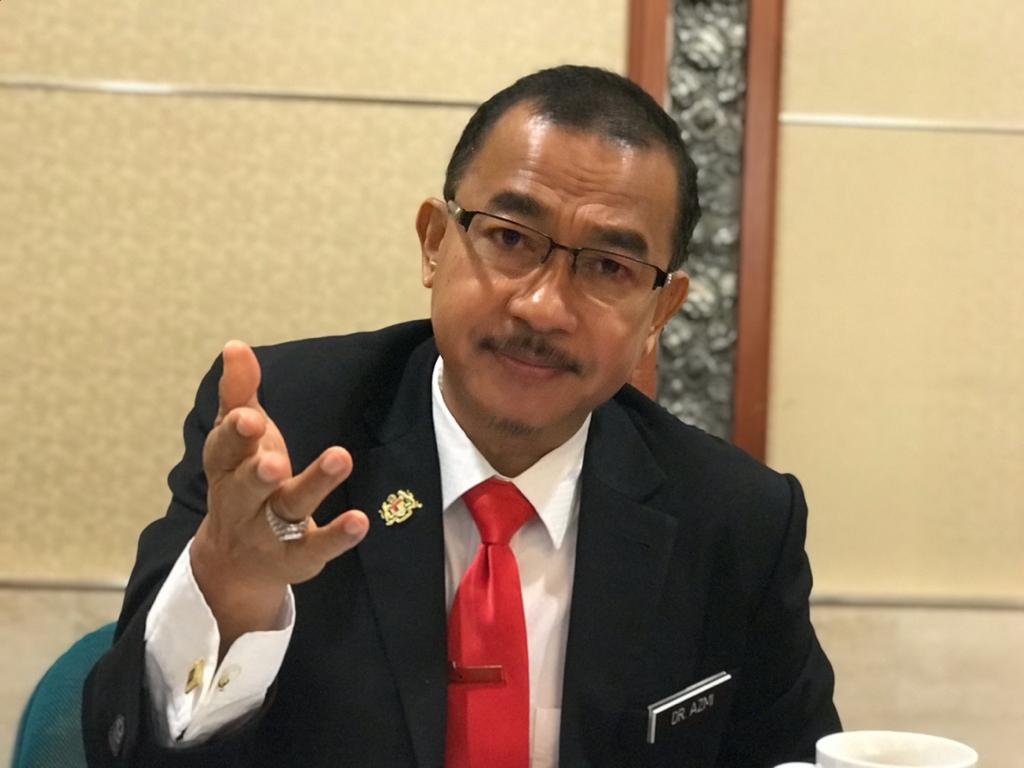KUALA LUMPUR, Sept 9 — The Ministry of Health (MOH) will continue the contract system for health care workers, citing the World Health Organization (WHO) that judged Malaysia had sufficient capacity in handling pandemics.
Deputy Health Minister Dr Noor Azmi Ghazali told Senator Lim Pay Hen in Dewan Negara yesterday that WHO, through its International Health Regulations (IHR) 2005, had evaluated Malaysia from October 21 to 25 last year in 19 technical scopes, including human resources. WHO’s IHR represent an agreement between 196 countries on global health security in tackling public health events.
“Based on that evaluation, Malaysia was found to be a country that has sufficient capacity and commitment in handling pandemics and disease outbreaks, and this was proven in Malaysia’s achievements in handling the Covid-19 pandemic,” said Dr Noor Azmi.
“To fulfil the needs of service delivery amid limited job positions, the Ministry of Health (MOH) will, for now, continue to use the contract approach for the related service schemes.”
Senator Lim had asked if MOH would consider appointing contract medical officers and health care workers on a permanent basis to ensure the preparedness of the country’s health care sector, since the coronavirus pandemic — which has infected over 9,500 people in Malaysia to date — showed the need for numerous doctors and other health workers.
MOH deployed nearly 400 contract medical officers to Sungai Buloh Hospital in Selangor last March, Malaysia’s main Covid-19 treatment facility. However, more than two dozen contract junior doctors posted to Sungai Buloh Hospital from three university hospitals previously complained last May about two months’ unpaid salaries. Recently, a Sungai Buloh Hospital contract doctor also complained about months’ delay in the payment of medical officers’ relocation, on-call, and Covid-19 special allowances.
Dr Noor Azmi revealed that although the Public Service Department (JPA) approved last December 10,675 new permanent posts in MOH, these job positions would be created in phases for new facilities and facilities that are undergoing upgrades.
Only 5,984 permanent positions, or 56 per cent, have been created so far, comprising 997 medical officers, 154 dental officers, 282 pharmacy officers, 3,296 nurses, 1,008 medical assistants, and 247 dental surgical assistants.
“With the approval of these positions, a portion of contract officers can be considered for permanent appointments,” Dr Noor Azmi said.
He also insisted that the contract system was aimed at giving medical graduates job experience through housemanship and compulsory service with the government without being tied to permanent appointments with MOH.
“Therefore, if we look at this issue carefully, actually the contract system for graduates is a solution itself that has been taken by the government.”
The Bagan Serai MP added that contract officers could be considered for permanent appointments based on job vacancies and the availability of new positions that may be opened up from time to time.
“Besides filling new positions, officers can also be considered for permanent appointments when current jobs fall vacant due to attrition factors, like retirement and resignations.”
Health Minister Dr Adham Baba recently told the Dewan Rakyat that a total of 1,335 medical graduates have yet to receive a placement for their training, eight months after approval by the Public Service Commission on December 7 last year. He also revealed that only 3.3 per cent, or 665 doctors, of 19,909 contract medical officers were given permanent positions in the public sector as of July 31 this year.
Junior doctors have complained that the contract system, which came into force under the Barisan Nasional (BN) administration in December 2016, would leave many jobless after completing their two-year compulsory service, as they would not have sufficient time to complete their specialisation training that takes at least four years post-housemanship.
They have also complained about the different civil service grades between the UD41 contract and UD44 permanent medical officers that result in a differential annual salary of nearly RM8,000, besides the lack of unrecorded and child care leave for contract doctors, and hazard leave for contract medical officers from departments like radiology and psychiatry.








